After watching Cowspiracy in 2015 and making the switch from vegetarian to veganism, Sarah King started to notice how many animal products were in the items she used every day so set up her blog Grandermarnier. Here she talks about the ethics behind buying animal-based secondhand clothing when you’re a vegan…
As vegans, we believe that it’s wrong to use animals for food, fashion and entertainment, or any other exploitative reason. In recent years, it’s become easier to live a vegan lifestyle, with more plant-based options than ever before in supermarkets and restaurants.
However, when it comes to our wardrobe it can be difficult to navigate the right path to take. Pre-dating the invention of modern fabrics, the use of animal skins, furs, feathers and wool were essential to human survival.
Now though, with cruelty-free alternatives readily available such as mushroom and apple leather the idea of killing animals and wearing their skins is something us vegans are fundamentally against, and it’s a practice we hope to see the end of as soon as possible.
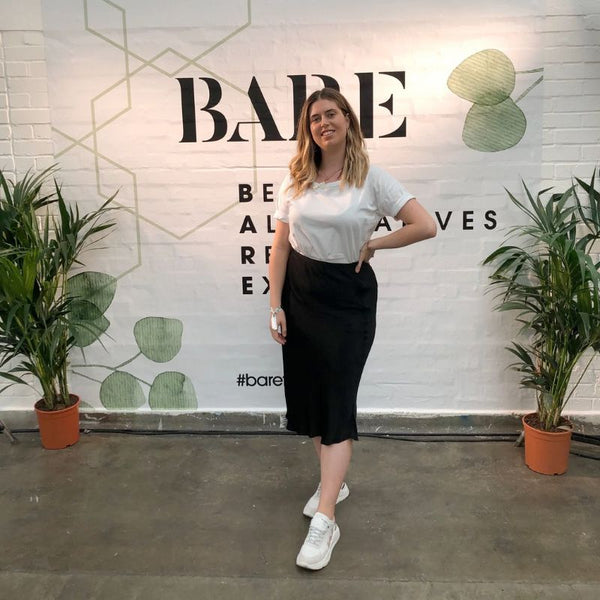
What are the arguments for buying secondhand animal-based Items?
There are plenty of questions most vegans are likely to get asked at some point; ‘Where do you get your protein from?’, ‘Do you miss bacon?’, ‘Don’t plants feel pain?’ However, some questions, such as ‘Can vegans buy secondhand animal products?’ is a bit trickier to answer.
As a society, we’re becoming increasingly aware of the impact our choices have on society and the environment, and the conversation around how we create and consume fashion is continuing to grow. People are trying to find a way to enjoy fashion, but in a more sustainable way.
Buying pre-owned animal-based items can feel like a way to take something that already exists and give it purpose by reusing it. This can also mean reducing the number of new resources used for production and reducing the demand for new animal products overall. We know that buying new clothing will have more of an environmental impact than buying clothes from a charity shop, so could this be part of the antidote to fast fashion?
Clothes with faux leather or a synthetic alternative to wool can be very damaging to the environment, from the chemicals used to make them to the microplastics released in the washing machine. It could also be argued that animal-based clothing would be more likely to biodegrade than synthetic clothing, making it a more sustainable choice.
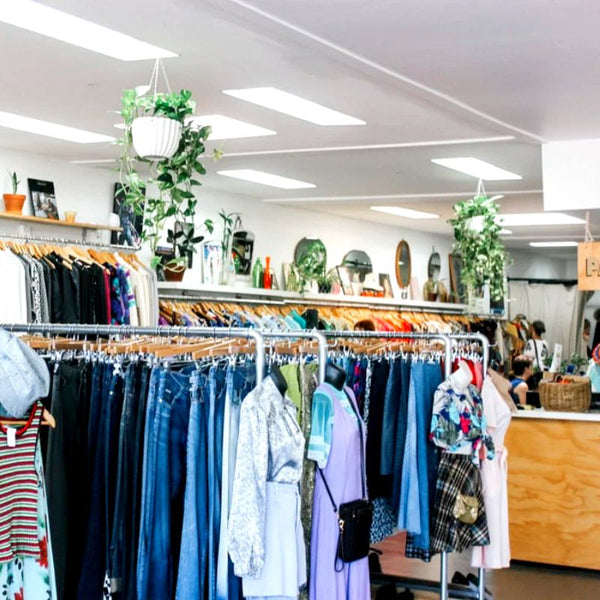
Another argument commonly put forward for vegans buying secondhand animal materials is that it doesn’t financially benefit the original manufacturers, as the purchase has already been made, and can’t be undone. Can this line of reasoning fully justify a vegan's choice to wear leather or wool products, or is there still a conflict of core morals at play here?
Secondhand clothing sold in charity shops and vintage stores has already been paid for by the original owner, so the purchase of these cannot increase the demand for those products. If purchasing second hand clothing containing leather or wool doesn’t feed the demand for these materials, is it really supporting the act of harming an animal?
But choosing second hand animal-product is not all it seems…
Some people believe that this suggested ‘grey area’ of vegans buying secondhand leather or wool is confusing the concept of veganism and could be damaging to the movement. If the goal is to turn the world vegan, then are we being hypocritical for wearing materials made from dead animals?
Looking at the big picture, we might have to consider how wearing animal materials, real or faux, new or old, is perceived in today’s society. Perhaps the answer is to avoid any clothing that looks like it could have come from an animal – yes, that even means leopard print!
Examining how we frame animal rights informs our actions
Ultimately the decision to wear second hand clothing with animal materials comes down to you as an individual. What ethics are most important to you? What does it mean to you to be a vegan?
There is a need to examine how you think about animal welfare and rights as these concepts inform our decisions on whether to purchase pre-owned animal based items. For example, many vegans understand that animals should have certain basic rights, such as the right not to be subjected to unnecessary suffering or cruelty. This understanding can shape one’s decisions around re-using products derived from animals or permitting the sale of these items.
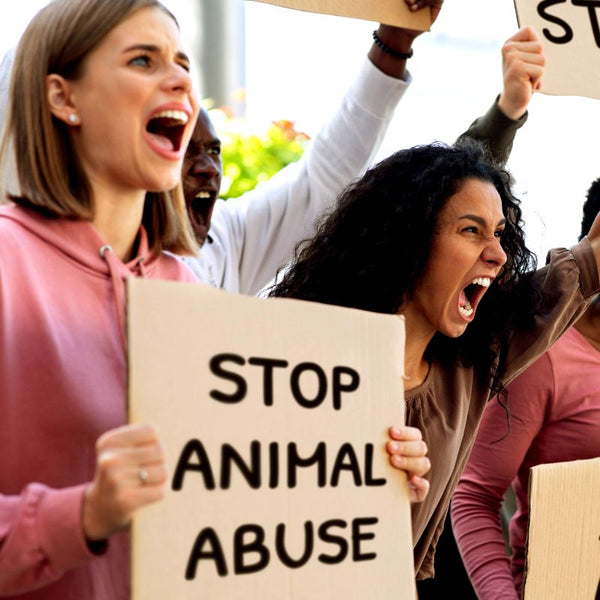
You may also focus on the environmental side of the argument, or you might be swayed by the animal welfare factors. Either way, it’s best to do your own research and come up with an answer that you feel comfortable with.
Ultimately, it is up to you to decide what you are comfortable with in terms of buying second hand animal products and how your understanding of animal rights and welfarism can influence your ethical choices. How you define your position as a vegan should guide your feelings about wearing such clothing, regardless of whether it came from a high street retailer or a second-hand charity shop.
So, what will you do? We'd love to hear your thoughts in the comments below.
>> Related blog: What is vegan and sustainable fashion?
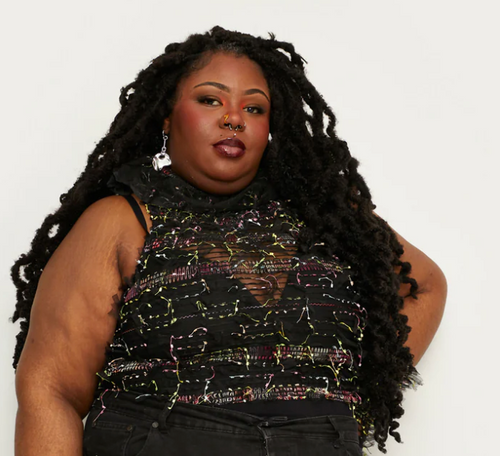

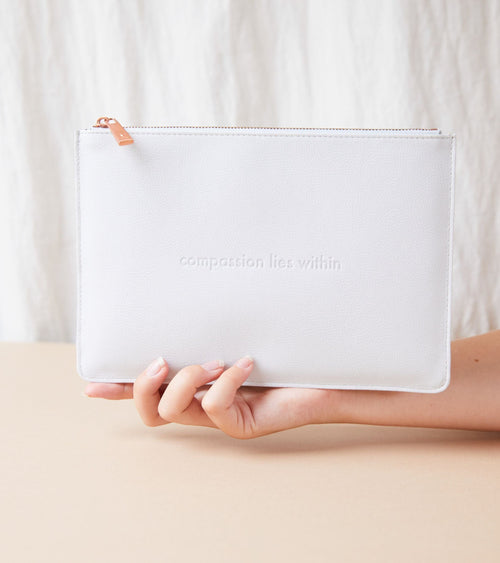
0 comments